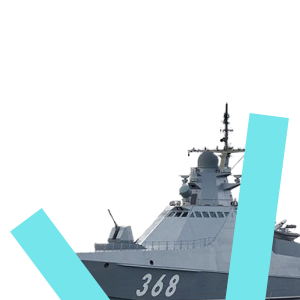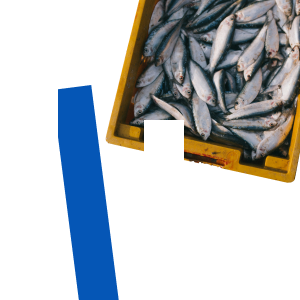Stabilisation During Martial Law
The Verkhovna Rada continues functioning in conditions of martial law, which presents many challenges both for the state management system in general and for the Parliament in particular. However, this session has seen the stabilisation of legislative processes.
This means that the Verkhovna Rada is still dealing with the agenda that emerged after 24 February 2022, but its functioning is no longer so extraordinary and hasty. Work processes have been modified to such an extent that it has become feasible to partially revisit the issues that were on the agenda prior to the full-scale invasion.
Overall, the Monitoring of the work of the 8th session of the 9th convocation of the Verkhovna Rada showed three key trends: strengthening the positions of the Cabinet of Ministers, reducing legislative spam, and stabilising work under the martial law regime.
During the 8th session, 385 draft laws were registered, and 207 were considered in the session hall. 138 draft laws became laws.
At the same time, a telling peculiarity is when, for the first time in a long time, at least during the entire 9th convocation, the number of draft laws registered with the Verkhovna Rada per session is lower than the number of Verkhovna Rada MPs. On average, one MP initiates of 0.94 draft laws, which also reflects the tendency to reduce legislative spam.
The recurring trend is the reduction in the number of registered draft laws per MP. However, it was during the 8th session that the ratio of one draft law per one MP for most factions was lowered.
It is also noteworthy that the Cabinet of Ministers has improved its interaction with the Verkhovna Rada and has begun to promote its draft laws more efficiently. This indicates that the government is improving its position as a subject of legislative initiative, although it has previously lagged behind the MPs and the President. Hence, the Cabinet of Ministers has significantly increased the share of legislative initiatives, and as a result, 30% of all laws adopted during the 8th session were initiated by the Government. This is a record of the entire 9th convocation of the Cabinet of Ministers.
Furthermore, the situation regarding the passage of draft laws is interesting: the dynamics of the 8th session somehow continue the dynamics of the first half of the martial law period and somewhat return to the dynamics of the 6th session. Some of the draft laws pertain to the military agenda, while the other portion relates to initiatives that were developed and registered up until 24 February 2022 (for the second reading, the ratio is approximately 50/50).
The President, as the subject of a legislative initiative, returned to more familiar tasks: 20% of presidential initiatives adopted during the first reading and, in general, are made up of “ordinary” laws. During the first six months of martial law, laws were adopted as initiated by the President, which were purely symbolic laws and ratifications. Regarding legislative proposals of the MPs, it is noteworthy that for the first time in the last four sessions, their draft laws experienced the slowest passage between adoption in the first reading, the second reading, and overall. Nonetheless, the average processing time for both parliamentary and government draft laws was significantly shorter than that of the 6th session despite the similar duration.
The process of draft law review by committees and expert analytical units, as well as the political approval of draft laws, roughly corresponds to the first six months of martial law. The time required for preparing draft laws for the second reading increased slightly, and for 40% of draft laws, this indicator grew by 17–19 days.
During the 8th session, 42 conclusions of the main committees were prepared on the dismissal of draft laws. Conclusions regarding deviations can serve as indicators of both the political loyalty of the committees and the level of quality of the preparation of draft laws.
Presidential draft laws appear to meet both criteria, as they do not have findings on the dismissal. Governmental draft laws appear to be satisfactory, with only two of them having received a conclusion on dismissal. Draft laws submitted by MPs of the “Servant of the People” faction received the majority of conclusions about deviations, which is logical, considering the number of deputies of this faction and their legislative activity. Other factions and groups received less than 5 conclusions of deviation each.
In traditional monitoring, the aspects related to violations of the Regulation are analysed separately. During the first reading, the share of violations decreased, but during the second reading, it barely changed compared to the previous session. This phenomenon can be attributed to the distribution of draft laws according to the readings: during the initial six months of martial law, most draft laws were adopted in the first reading and as a whole, whereas now, the majority of draft laws are adopted in the second reading.
Procedures for consideration of up to 63% of laws had violations. At the same time, the practice of adopting draft laws right away almost stopped. No draft law was adopted on the day it was registered, only one was adopted the day after it was registered.
This session may be characterised as a “stabilisation” one for the activities of the Verkhovna Rada in martial law conditions. With a well-established and stable performance, the Parliament is capable of allocating sufficient time to the consideration of draft laws, resulting in their adoption during the second reading rather than the first reading. Thus, the Verkhovna Rada was able to adapt its operation so that important draft laws were considered and worked out for a longer time. This usually means a higher quality of laws. Nevertheless, violations in legislative procedures are still at a high level.
Read more about the work of the Parliament during the second six months of the full-scale invasion in the monitoring of our analysts.
This study has been prepared with financial support from Sweden.














